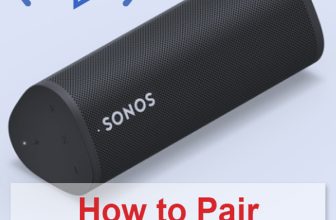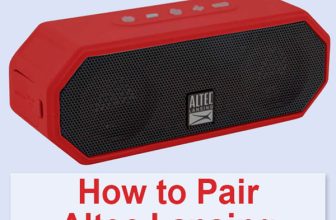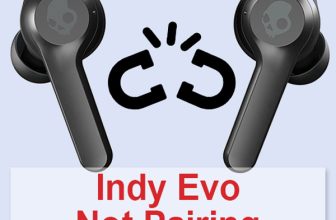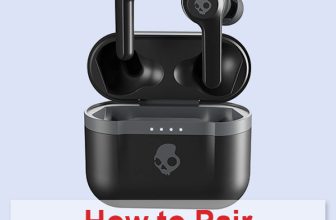Does noise cancelling damage your hearing? Please, no panic or throwing away your headphones. In this article, we’ll try to figure this question out quick.
Spoiler: Overall, the sound pressure can impact listening experience causing physical discomfort, etc… In sum, the noise induced hearing loss. Well, we’ll keep this thesis for later. The short answer for the main question is no, yet we need more details. As of now, let’s discover what’s anti noise system is.
Table of Contents

Is Noise Cancelling Bad For Your Ears
How does noise cancelling technology work?
You are in a public place, let it be an airport or crowded cafe, wearing headphones or earbuds not wanting to hear any background sounds. What would you choose:
- to leave out of noisy environment
- to make music louder
- to press ear cups of your headphones harder
- to wear noise cancelling earbuds
I’d rather go than deal with so many choices, but thankfully, we are all different. Basically, the experts recommend to get to know the noise cancelling technology better and start using it. So, what’s that?
The headphones have two systems of noise cancellation:
Passive noise cancellation (PNC)

It uses an isolative mechanism where the pads on the headphones separate the external noises from the music you are listening to. It is worth mentioning that this basis is utilized for regular headphones, earphones which go into the ear canal, or earbuds in order to create a noise isolation. The unwanted noise doesn’t physically go through the padding over- or in-ear cup by being blocked. Therefore, PNC headphones can’t actually ‘cancel’ this noise by protecting your ears.
Active noise cancellation (ANC)

It is based on neutralizing the ambient noise by removing it. The headphones have an incorporated microphone which captures the surrounding noise. Then, it’s processed by battery-powered noise cancellation technology that determines its amplitude and frequency. Thus, this system creates an opposite sound to the original (an anti-sound). Hence, when these two, low and high-frequency signals, are met, the noise fades out, and the user can listen to an audio without losing sound quality. So, is active noise cancelling bad for your ears? Let’s find this out below.
Is a noise cancellation system harmful?
The noise cancellation technology doesn’t make you exposed to hear loss. Furthermore, on a reasonable level, it doesn’t emit radiation or unhealthy waves like other technologies do.
Nevertheless, there have been reports of the wearing ANC headphones. People had some symptoms:
- the feeling of dizziness
- irritation
- headache
- jaw pain
- even ear fatigue
Some of these were caused by minor hissing made by the specific frequency of sound waves, which removes the background noise. Despite this, the hiss doesn’t impair your hearing.
Noise levels up the stress hormones
Remember our thesis about the effect of sound wave on a physical state? It’s time to bring more light into it.
People are used to thinking that high-frequency sounds are crucial for hearing loss. We can’t help but agree with that. The control of the volume level prevents a health risk associated with hearing damage. Loud noise impacts the general state of comfort, affecting sleeping which results in insomnia, increased stress levels, headache, high blood pressure, etc.
So, what about low level noises? The low frequencies are harmful when they are continual because they cause the level of stress hormones, like adrenaline and cortisol, to elevate. These two raise the blood pressure and cholesterol which is associated with an increased risk of heart diseases.
Henceforth, noise cancelling headphones neutralize the outside sounds meaning there’s low probability for the stress hormones to level up. This way, there’s no chance of being stressed about the ambient noise. Thus, it prevents hearing loss.
So, what can you do to maintain your hearing?
As we’ve figured that the noise cancellation doesn’t impact the hearing negatively, let’s consider how we can keep it protected.
1. Avoid loud noises
The noise cancelling system is an excellent solution in daily life when you are in noisy surroundings like in commercial building or transportation when you need to work or relax. The ANC technology allows to pass through minor external noise, so you know what’s happening around. It’s also important when you cross the street or use a crowded sidewalk.
Nonetheless, you can still listen to desired music or podcasts at lower volumes without losing the full spectrum of sounds.

The ANC technology allows to pass through minor external noise, so you know what’s happening around
2. Lower the volume
Listening to music at high levels can damage hearing. What’s more, it causes habituation to auditory stimuli. With time, the ears will not identify it as a high volume, especially when it happens constantly. This effect is called auditory fatigue. The eardrum suffers damage and, in some cases, results in pain.
It’s recommended to set the device’s volume up to 80% when utilizing the noise cancelling headphones. So, the sound level should not reach more than 60 dB.

The sound level should not reach more than 60 dB
Technically, it doesn’t matter if you are using active noise reduction or no having high volumes. It won’t keep ears protected from the pressure. Moreover, the ANC mechanism is beneficial for you as it doesn’t require to raise the volume in order to drown outside sounds.
3. Take a break
If you struggle with minor headache or feel dizziness, or just tired of having active noise cancellation on, take small breaks when it’s possible and switch off this system. It will prolong your battery life and give you some minutes to relax.
Noise cancelling headphones lead to giddiness?
As we mentioned before, loud noises can lead to increased pressure. It raises all over the body, namely in the ear canal, so one can experience a feeling of rotation.
The research done at the University of Utah established that some people expose dizziness as a response to specific wave frequencies due to “a thinning of the bone enclosing the inner ear”, the article says. It means that particular sounds created by a noise cancellation give false signals to the brain that a head is spinning when it is not. The effects are related to disorientation, eyeball rotation, and imbalance. In other words, there’s a confrontation between what someone sees and feels.
Nevertheless, this shouldn’t be an issue for a regular listener in noisy environments. However, it can cause a difficulty if one is suspected to motion sickness.
To conclude
So, are noise cancelling headphones bad for your ears? Definitely, there’s no high risk of getting impaired hearing by using them. Noise cancelling technology removes the unnecessary external sounds making you enjoy listening to music. Yet the sound volume should be considered in order to protect your hearing from damage.
The noise cancelling system is well recommended for your headphones or earbuds.
Quick FAQ







